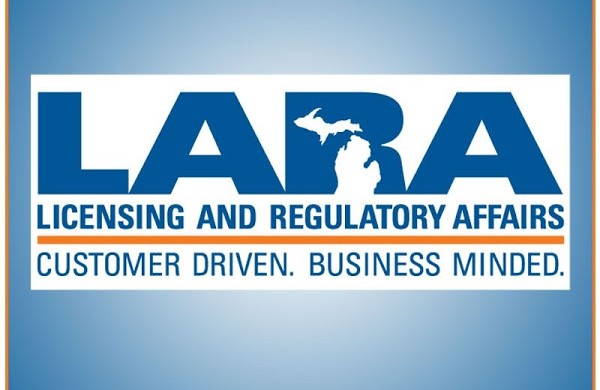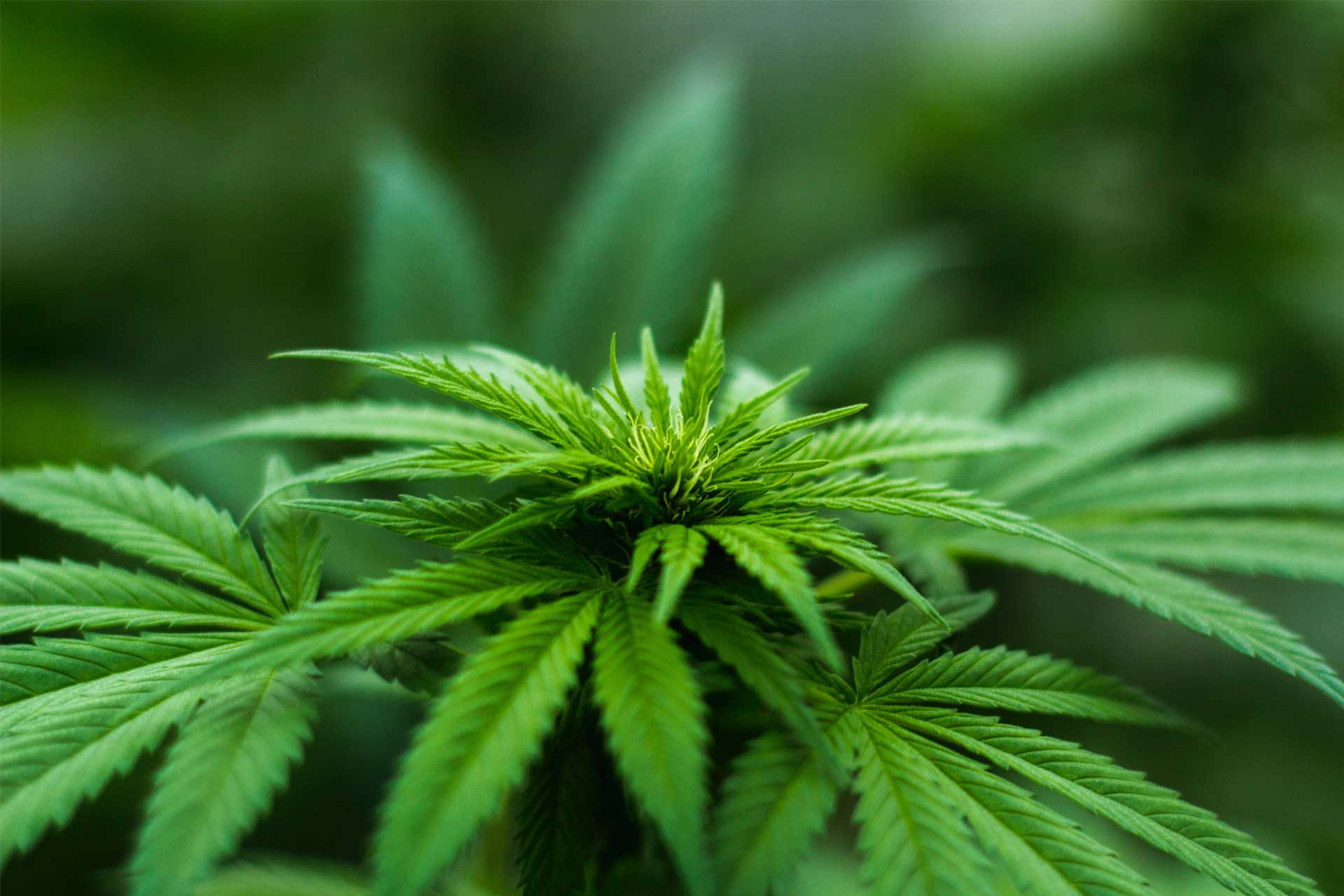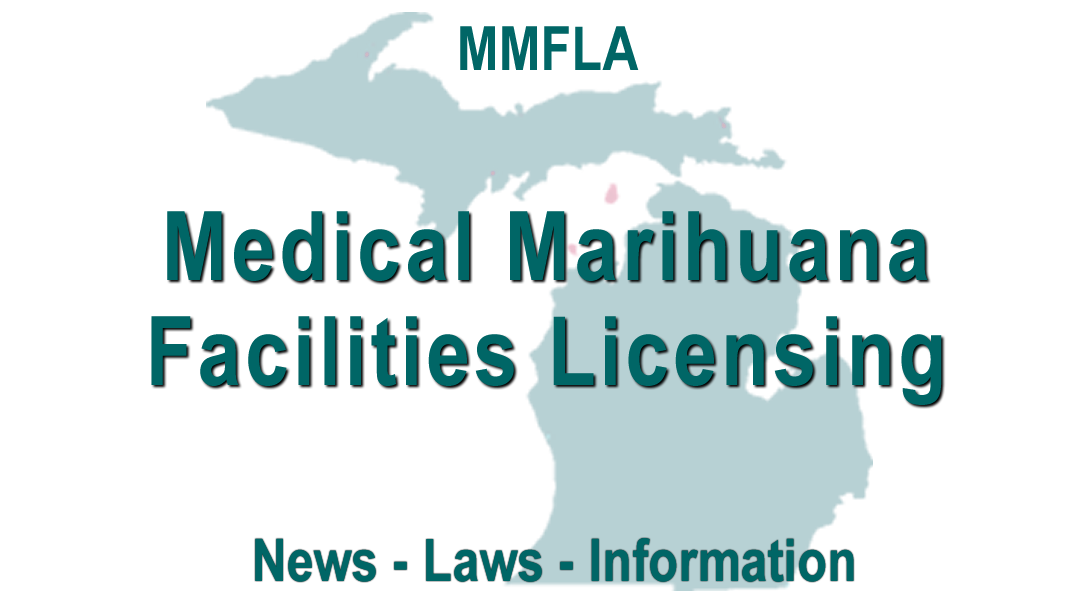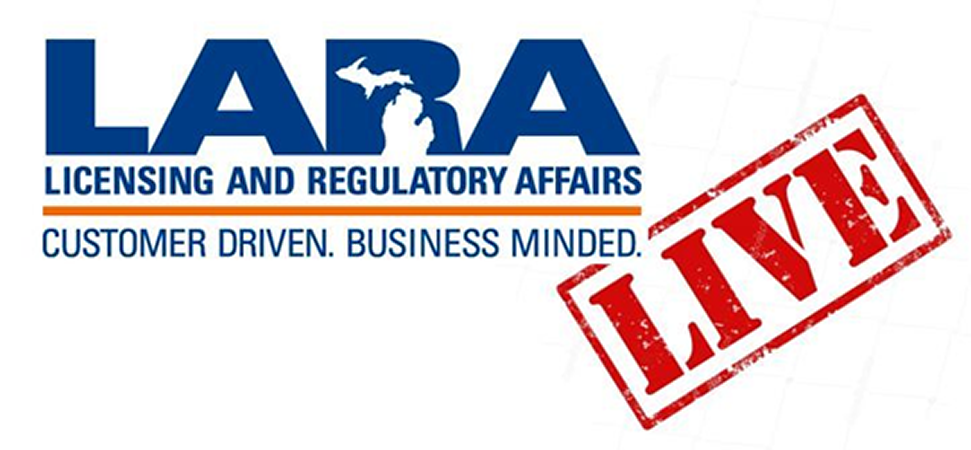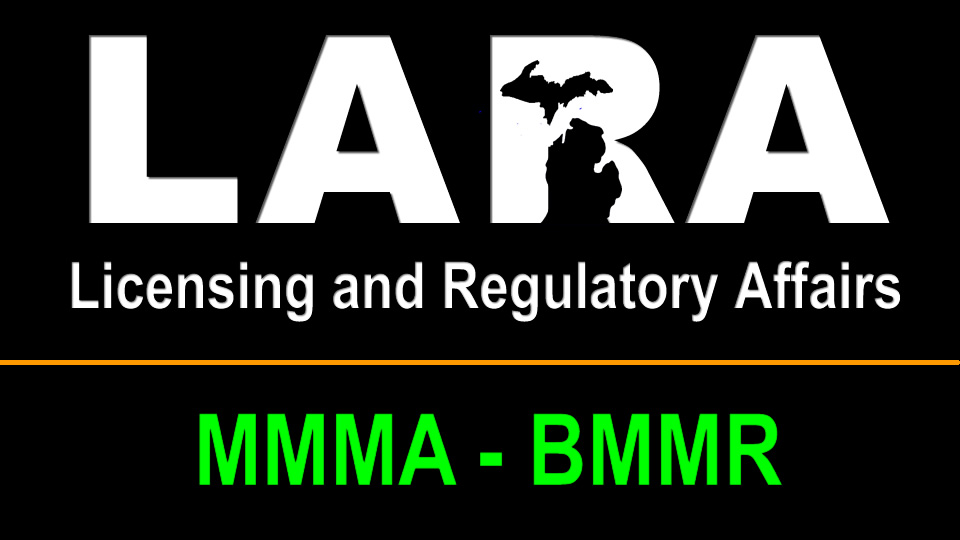
Mar 21, 2019 | LARA-MMFLA Info, News
The resolution of Marijuana product access to patients from the LARA Medical Marihuana Licensing Board Meeting in Lansing, Michigan.
At a regularly scheduled meeting of the Medical Marihuana Licensing Board (Board), convened in Lansing, Michigan, the following resolution was adopted.
WHEREAS:
The Board is established within the Department of Licensing and Regulatory Affairs (Department) under the Medical Marihuana Facilities Licensing Act, 2016 PA 281 (Act), with the general responsibility to implement the Act; and The Board’s duties include granting or denying each application for a state operating license, providing for the levy and collection of fines for a violation of the Act or rules and providing oversight of marijuana facilities through the Board’s inspectors,
agents, and auditors for the purpose of conducting investigations into the operation of marijuana facilities as the Board considers necessary and proper to ensure compliance with the Act and rules and to protect the overall safety, security and integrity of the operation of marijuana facilities; and
The Board’s powers include the authority to investigate alleged violations of the Act or rules, take appropriate disciplinary action against a licensee, and take disciplinary action as the Board considers appropriate to prevent practices that violate the Act or rules, and take any other reasonable or appropriate action to enforce the Act or rules; and
THEREFORE:
IT IS RESOLVED that the Board will not take disciplinary action against an
applicant in the following circumstances:
• For an Applicant temporarily operating:
o For the time period ending March 31,2019:
• The applicant temporarily operates a proposed marihuana facility
that would otherwise require a license if either of the following
apply:
• The applicant’s proposed facility is within a municipality that
adopted an ordinance before December 15, 2017 but is
pending adoption of an ordinance under the Act, or
• The applicant’s proposed facility is within a municipality that
has adopted an ordinance before December 15, 2017.
• The applicant notifies the Department within 1 business day of
becoming aware of any adverse reaction to a marijuana product
sold or transferred, and
• For purposes of this resolution only, the applicant applied for a
license no later than February 15, 2018.
o An applicant that does not comply with this resolution shall cease and
desist operation and may be subject to penalties and sanctions, and
o An applicant that is temporarily operating is not guaranteed a license.
IT IS FURTHER RESOLVED that the Board will not take disciplinary action
against a licensee in the following circumstances:
• For a licensed Provisioning Center:
o For the time period ending March 31,2019:
• The licensee obtains marijuana products from a registered primary
caregiver (caregiver), and
• The licensee obtains patient consent on a form provided by the
Department prior to selling any marijuana products that have not
been tested in full compliance with the law and administrative rules,
and
• The licensee enters all inventory into the statewide monitoring
system immediately upon receipt from a caregiver, and
• The licensee, before any sale or transfer, must verify, and confirm
with government issued photo identification, with the statewide
monitoring system that a patient or primary caregiver holds a valid
registry identification card, and
• The licensee enters all sales in the statewide monitoring system,
and
• The licensee determines sales will not exceed daily purchasing
limits, and
• The licensee shall notify the Department within 1 business day of
becoming aware of any adverse reaction to a marijuana product
sold or transferred.
o For the time period beginning April 1, 2019 and until such time as the
Department publishes an advisory bulletin notifying all licensees that the
effect of this resolution has been terminated:
• The licensee obtains marijuana products only from a licensed
grower or licensed processor, and
• The licensee obtains patient consent on a form provided by the
Department prior to selling any marijuana products obtained from a
caregiver prior to April 1, 2019 that have not been tested in full
compliance with the law and administrative rules, and
• The licensee enters all inventory into the statewide monitoring
system immediately upon receipt, and
• The licensee, before any sale or transfer, must verify, and confirm
with government issued photo identification, with the statewide
monitoring system that a patient or primary caregiver holds a valid
registry identification card, and
• The licensee enters all sales in the statewide monitoring system,
and
• The licensee determines sales will not exceed daily purchasing
limits, and
• The licensee notifies the Department within 1 business day of
becoming aware of any adverse reaction to a marijuana product
sold or transferred.
• For a licensed Grower or licensed Processor:
o Until such time as the Department publishes an advisory bulletin notifying
all licensees that the effect of this resolution has been terminated:
• The licensee obtains marijuana products from caregivers, and
• The licensee enters all inventory into the statewide monitoring
system immediately upon receipt, and
• The licensee only transfers marijuana products that have been
tested in full compliance with the law and administrative rules, and
• The licensee tags or packages all inventory that has been identified
in the statewide monitoring system, and
• The licensee transfers marijuana products by means of a secured
transporter, except where exempted under the Act, and
• The licensee notifies the Department within 1 business day of
becoming aware of any adverse reaction to a marijuana product
sold or transferred.
See the Document – LARA 190321 Product_Access_for_Patients_640352_7

Mar 8, 2019 | Blog, LARA-MMFLA Info
8.8 Immunity and Protected Activities
The Medical Marihuana Facilities Licensing Act (MMFLA) creates a state licensing system that provides licensees, certified public accountants, and financial institutions with immunity from prosecution for MMFLA-compliant marijuana-related activities. The MMFLA licenses and regulates medical marihuana growers, processors, provisioning centers, secure transporters, and safety compliance facilities.
The MMFLA “does not limit the medical purpose defense provided in . . .MCL 333.26428 . . . to any prosecution involving marihuana.” MCL333.27204.

A. Licensee Immunity
“Except as otherwise provided in [the MMFLA], if a person has been granted a state operating license and is operating within the scope of the license, the licensee and its agents are not subject to any of the following for engaging in activities described in [MCL333.27201(2)]:
(a) Criminal penalties under state law or local ordinances regulating marihuana.
(b) State or local criminal prosecution for a marihuana related offense.
(c) State or local civil prosecution for a marihuana related offense.
(d) Search or inspection, except for an inspection authorized under this act by law enforcement officers, the municipality, or the department.
(e) Seizure of marihuana, real property, personal property, or anything of value based on a marihuanarelated offense.
(f) Any sanction, including disciplinary action or denial of a right or privilege, by a business or occupational or professional licensing board or bureau based on a marihuana-related offense.” MCL 333.27201(1).
B. Protected Activities
“The following activities are protected under [MCL 333.27201(1)] if performed under a state operating license within the scope of that license and in accord with [the MMFLA], rules, and any ordinance adopted under [MCL 333.27205294]:
(a) Growing marihuana.
(b) Purchasing, receiving, selling, transporting, or transferring marihuana from or to a licensee, a licensee’s agent, a registered qualifying patient, or a registered primary caregiver.
(c) Possessing marihuana.
(d) Possessing or manufacturing marihuana paraphernalia for medical use.
(e) Processing marihuana.
(f) Transporting marihuana.
(g) Testing, transferring, infusing, extracting, altering, or studying marihuana.
(h) Receiving or providing compensation for products or services.” MCL 333.27201(2).
C. Immunity for Owners and Lessors of Real Property
“Except as otherwise provided in [the MMFLA], a person who owns or leases real property upon which a marihuana facility is located and who has no knowledge that the licensee violated [the MMFLA] is not subject to any of the following for owning, leasing, or permitting the operation of a marihuana facility on the real property:
(a) Criminal penalties under state law or local ordinances regulating marihuana.
(b) State or local civil prosecution based on a marihuana-related offense.
(c) State or local criminal prosecution based on a marihuana-related offense.
(d) Search or inspection, except for an inspection authorized under this act by law enforcement officers, the municipality, or the department.
(e) Seizure of any real or personal property or anything of value based on a marihuana-related offense.
(f) Any sanction, including disciplinary action or denial of a right or privilege, by a business or occupational or professional licensing board or bureau.” MCL333.27201(3).
D. Immunity for Certified Public Accountants
“Except as otherwise provided in [the MMFLA], a certified public accountant who is licensed under article 7 of the occupational code, . . . MCL 339.720 to [MCL] 339.736, is not subject to any of the following for engaging in the practice of public accounting as that term is defined in . . . MCL 339.720, for an applicant or licensee who is in compliance with [the MMFLA], rules, and the Michigan medical marihuana act:
(a) Criminal penalties under state law or local ordinances regulating marihuana.
(b) State or local civil prosecution based on a marihuana-related offense.
(c) State or local criminal prosecution based on a marihuana-related offense.
(d) Seizure of any real or personal property or anything of value based on a marihuana-related offense.
(e) Any sanction, including disciplinary action or denial of a right or privilege, by a business or occupational or professional licensing board or bureau based on a marihuana-related offense.” MCL 333.27201(4).
E. Immunity for Financial Institutions
“Except as otherwise provided in [the MMFLA], a financial institution is not subject to any of the following for providing a financial service to a licensee under [the MMFLA]:
(a) Criminal penalties under state law or local ordinances regulating marihuana.
(b) State or local civil prosecution based on a marihuana-related offense.
(c) State or local criminal prosecution based on a marihuana-related offense.
(d) Seizure of any real or personal property or anything of value based on a marihuana-related offense.
(e) Any sanction, including disciplinary action or denial of a right or privilege, by a business or occupational or professional licensing board or bureau based on a marihuana-related offense.” MCL 333.27201(5).

Dec 4, 2018 | Blog, LARA-MMFLA Info
NEW MAXIMUM THC CONCENTRATIONS FOR MARIHUANA-INFUSED PRODUCTS
The Bureau of Medical Marihuana Regulation (BMMR) enforce the Administrative Rules under the authority of the Medical Marihuana Facilities Licensing Act (MMFLA).
Administrative Rule 62 (R 333.262) states that marihuana-infused products processed, sold, or transferred through provisioning centers must not exceed the maximum THC levels as established by the department.
For the purposes of maximum THC levels for marihuana-infused products, the department shall publish a list of maximum THC concentration and allowable dose limits.
ADVISORY BULLETIN
December 3, 2018
This technical bulletin does not constitute legal advice and is subject to change. Licensees are encouraged to seek legal counsel to ensure their operations comply with the Medical Marihuana Facilities Licensing Act and associated Administrative Rules.
Changes from the previous Emergency Rules include:
• The limits were removed for topicals as they are not designed to be transdermal.
• The limits were lowered for edible maximum per container to be more in line with other states (Oregon, Washington).
• THC limits were increased for capsules to allow for more in the container.
• Dosages were added for products that did not have them; containers will now have clear directions and dosages to ensure patients do not over medicate.
• Patients typically start with 10mg servings; an allowance between 50mg -100mg allows a patient/caregiver to purchase higher strength medicine if needed.
See the Official Release Here
181203 Updated_THC_Limits_Bulletin_639605_7
Komorn Law has represented numerous clients through the legal chaos of starting up a business in the Michigan Medical Marihuana Industry as well as consulting and legal representation for Medical Maruhuana Patients and Caregivers.
If you or someone you know has been arrested as a result of Medical Marijuana, DUI, Drugs, Forfeiture, Criminal Enterprise or any other criminal charges please contact our office and ensure you’re defended by an experienced lawyer.
Attorney Michael Komorn is recognized as an expert on the Michigan Medical Marihuana Act. He is the President of the Michigan Medical Marijuana Association (MMMA), a nonprofit patient advocacy group which advocates for the rights of medical marijuana patients and their caregivers.
Contact us for a free no-obligation case evaluation 800-656-3557.
Follow Komorn Law
This page is for informational purposes only. Laws, regulations and the world change routinely, therefore we insist you consult an attorney for the most current legal information.
